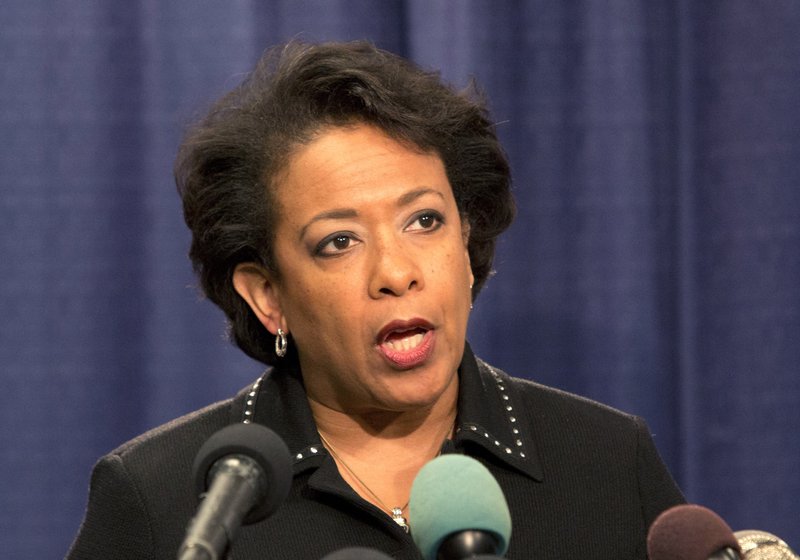CHICAGO -- Chicago officials are pledging to revamp the city's Police Department after the release of a scathing federal report, but a change in presidential administrations creates uncertainty for the critical step of negotiating a court-enforceable improvement plan with the Justice Department.
A report released Friday in the final days of Attorney General Loretta Lynch's tenure found that police in the nation's second-largest department had violated the constitutional rights of residents for years, including by frequently using excessive force, shooting at people who did not pose imminent threats and using stun guns on others who refused to follow commands.
The report was the culmination of a yearlong investigation, one of about two dozen civil-rights probes of local law enforcement agencies undertaken by the Justice Department during President Barack Obama's tenure.
The findings were released a week before Donald Trump is sworn in as president, marking a change from a Democratic White House that has strongly backed the review process to a Republican one that has expressed far less support for federally mandated overhauls of troubled police agencies.
The Justice Department began investigating the Chicago police force in December 2015 after the release of dashboard camera video showing a white officer shooting black teenager Laquan McDonald, who was hit 16 times as he held a small folded knife while walking away from police. The video of the 2014 shooting, which the city fought to keep secret, inspired large protests and cost the city's police superintendent his job.
The report's conclusions were unsparing, blaming "systemic deficiencies" within the department and the city, including insufficient training and a failure to hold bad officers accountable for misconduct. Officers endangered civilians, caused avoidable injuries and deaths, and eroded the community trust that is "the cornerstone of public safety," said Vanita Gupta, head of the Justice Department's civil-rights division.
Mayor Rahm Emanuel said the results of the investigation were "sobering" and pledged to make changes beyond those the city already has adopted, including de-escalation training and stricter use-of-force policies. Federal authorities and city officials have signed an agreement that offers a broad outline for changes, including commitments to improved transparency, training and accountability for bad officers. The Justice Department and the city will negotiate a final settlement to be enforced by the courts.
The federal government's recommendations follow an especially bloody year on Chicago streets. The city logged 762 homicides in 2016, the highest tally in 20 years and more than the combined total of the two largest U.S. cities -- New York and Los Angeles.
Lynch said the report lays "the groundwork for the difficult but necessary work of building a stronger, safer and more united Chicago for all who call it home."
Pressed to address questions about the fate of the investigation under the Trump administration, Lynch insisted that talks between Chicago and the federal government would continue regardless "of who is at the top of the Justice Department."
The Justice Department has opened 25 investigations of police departments in the past eight years, including in Cleveland; Albuquerque, N.M.; and Ferguson, Mo. Many of them have ended with consent decrees, which are submitted in court and commit an agency to major changes. Officials have moved quickly to resolve major cases before the end of Obama's administration, reaching a consent decree with Baltimore on Thursday.
At his confirmation hearing last week, Sen. Jeff Sessions, an Alabama Republican who is Trump's pick for attorney general, expressed ambivalence about the federal review process. He said he was concerned that broad investigations of police departments risk smearing an entire agency and harming officer morale.
Jonathan Smith, a former Justice Department civil-rights attorney who oversaw investigations into police forces, said it's logical for the department to want to conclude the investigation before a new administration takes over, regardless of the party.
"Moving forward, people are going to have to do something, and I think they will," he said.
Less confident were Black Lives Matter activists in Chicago, who said they did not trust Emanuel to follow through with vows to pursue an overhaul.
Information for this article was contributed by Carla K. Johnson of The Associated Press.
A Section on 01/15/2017
